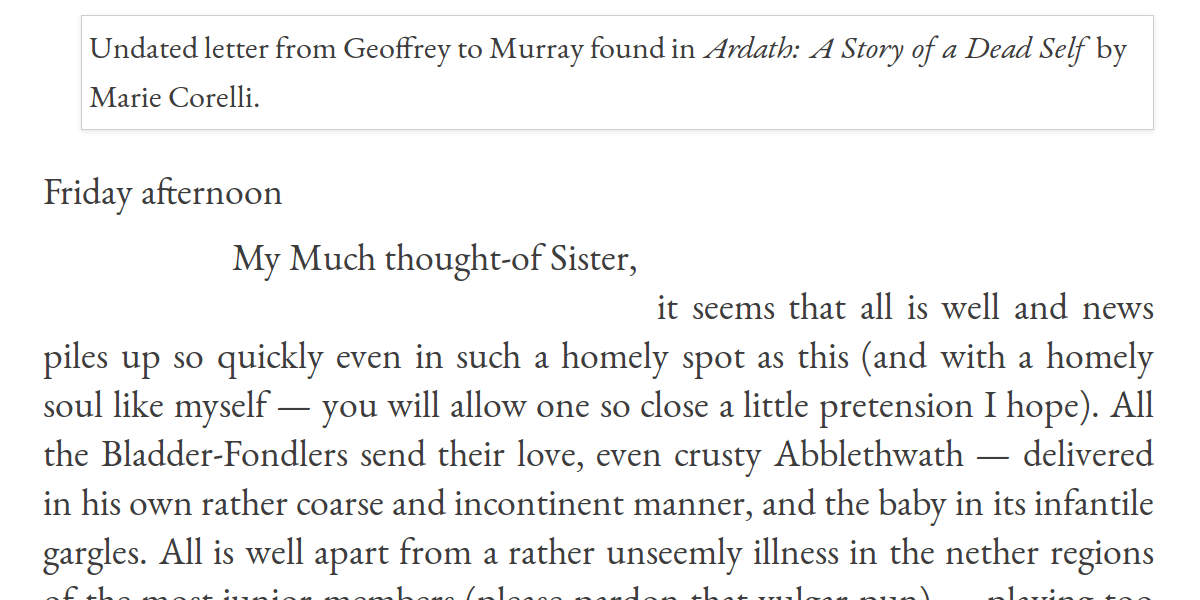Carry On Up The Neander
- Details
Passing by Castle Dyck, the extensive borough of Pongs and straight through the town of Titz, the second stage of the 2017 Tour de France (Düsseldörp—Lidje) had some potential for carry on, but the locals certainly excelled themselves with their art du tour.
Mot du jour: limoger
- Details
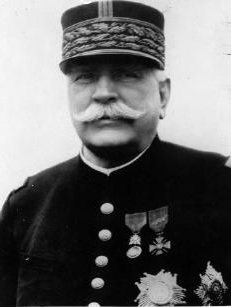
This word came up today in the context Donald Trump’s removal of James Comey as Director of the FBI. At first my brain leapt uselessly in the direction of ligoter “to tie up” (think ligature and you’ll see where this is coming from), but actually this verb, which today means “dismiss, fire, sack”, has a much more obscure origin.
The usual version, though lacking much actual evidence, goes like this. Early in the First World War, General Joseph (Jacques Césaire) Joffre, newly appointed commander-in-chief of the army (and proponent of General Foch’s concept of offensive à outrance “attack to excess” which lead to so many deaths), was cleaning house. After the First Battle of the Marne (7–12 September 1914) had stabilised the front (as well as anointing “Papa Joffre” as a hero and leading to a rash of babies called Joffre and Joffrette), it became clear that both sides’ dreams of a quick war would not come true. Consequently Joffre began removing 134 subordinates he considered incompetent and reassigning them to the 12th military district at Limoges where they would be out of the way, hence the verb limoger meaning “send to Limoges”.
In fact, there is no evidence of Joffre ever using this expression and less than a dozen officers were ever actually sent to Limoges, while a few others stayed in towns within the 12th military district. This also happened before the Marne. Many of the orders also did not originate with Joffre, but with the Minister of War, Adolphe Messimy, who was happy to claim in his memoirs that he invented the term himself.
Guillaumat, following my orders, commanded them to leave Paris and go to…Limoges. “Why Limoges?” I’ve often been asked. I desired that these generals, declared useless at the front, should be distanced from Paris, where they would have done nothing but spread gossip. Where to send them? Lyon, Marseille, Bordeaux were too large to avoid quickly becoming home to politico-military intrigues. I briefly hesitated between Nantes, Rennes and Limoges. I had to choose: Limoges was the choice.
…
The word did not exist yet, so it was I who enriched the French language.
However, Messimy was replaced as Minister on the 26th August 1914; the order sending officers to Limoges came the next day. Guillaumat himself, though writing much closer to the events (19th July 1915), exaggerates the numbers.
The expression “go to Limoges” [« aller à Limoges »] has become standard for the cast-off generals. Messimy suspended them, his successor detained them at Limoges where there were about sixty. Today, we let them go where they will, but the expression has remained. That said, they’re replaced quite a lot; so why suspend them?
So, it seems the myth has far outstripped the truth here, but that messy, arbitrary, whimsical aspect is what makes languages so interesting. You do wonder, though, what the good citizens of Limoges think about all this.

Romanians are still revolting
- Details
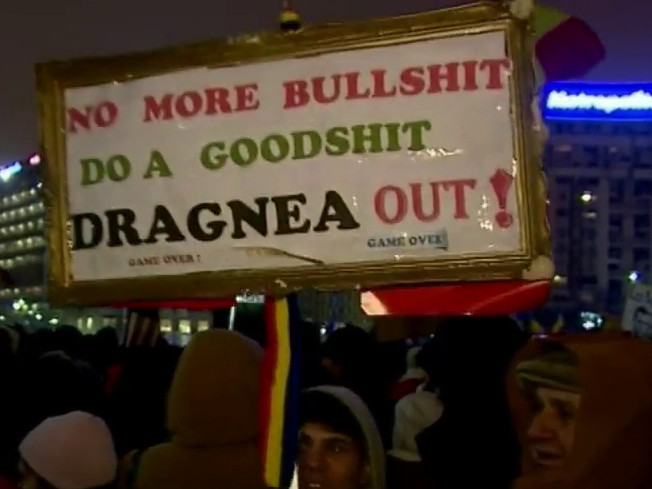
Greasy poll
- Details

It’s early days yet (the first round of voting is 23 April) but it’s disturbing to see the National Front coming first. It’s extremely unlikely that they would win the second round as the other parties’ votes would tend to go against them, but you never know. The left is quite fractured, due to the general drift to the right which seems to be mirroring (somewhat) the malaise of the left in Anglo-Saxon countries from the 1980s on, culminating in the bland Blairism that MPs in the UK seem to see as the only way these days.
There was a certain amount of surprise when the Socialist Party chose Benoît Hamon as their candidate (with 58% of the vote). The ‘pragmatist’ Prime Minister Manuel Valls seemed to be the obvious choice to counter the turncoat Emmanuel Macron, a young merchant banker who served as Minister of Economy, Industry and Digital Affairs in Valls’ second ministry, before forming his own centrist political movement En Marche! (“Forward!”), co-incidentally having his initials. In fact, many of Valls’ and Hamon’s stated policies are direct contradictions of each other. For example, Hamon is the only candidate calling for France to do more in accepting refugees—everyone else seems cowed by the threat of the National Front. He also doesn’t seem to think banning the burkini is essential to the proper functioning of the secular state, unlike pretty much everyone else. Sadly, since his victory various Valls supporters have started saying they won’t support him and even before the primary some Socialist Party figures were beginning to support Macron. Solidarité is a little thin on the ground.
Incidentally, was this graphic produced by a Valls supporter? Is that the best picture they could get of Hamon? He is quite laid-back and only seems to wear the cheapest suits, but still…
Another cat that may be about to drop among the pigeons is the slight possibility of François Fillon dropping out of the race. He is in the middle of a scandal about his (English) wife being employed as his political aide. The Republicans are taking the tried and true route of arguing it’s all within the rules (which it is) and everyone’s doing it (91 parliamentarians at least employ a family member), but it’s all a bit on the nose, especially as the amount paid out is much more than the average political aide could expect to receive and the work (if there was real work involved which is hard to prove or disprove) seems to have been all done from their country home. She doesn’t even seem to have a pass/i.d. for the Assembly. Certain delegates are getting nervous about it after being questioned by their constituents and party activists over the past few days and there have been quiet discussions about who might be their plan B. Alain Juppé is the obvious choice, but at 71 he might stand out a bit too much from the field (Le Pen is 48, Macron 39, Hamon 49, Mélenchon 65). There is a suggestion they might turn to the Sarkozy-favoured François Baroin (51), who I personally find nauseatingly unctuous, but this is highly speculative as he didn’t stand in the primary at all. But if the field was opened up again, I expect you would get quite a few of the younger contenders having a go. Xavier Bertrand certainly. Laurent Wauquiez probably…ugh.
If the Right was to end up as fractured as the Left, it’s hard to say who would benefit more. Macron, whose policies are pretty ethereal apart from a vague sense of populist middle-wayism; or Le Pen, whose appallingly stupid policies are pretty well known.
† My translation of France Insoumise which Wikipedia translates as “Unsubmissive France”. Insoumis(e) means “rebellious, disobedient, unruly”.
Trumpf
- Details

There are many stupid arguments going on across the Internet about Donald Trump, but one of the most pointless has been going on at Wikipedia and it’s about his surname. John Oliver made one of his humorous rants some months ago (Make Donald Drumpf Again) and referred to Donald’s prescient ancestor who changed the family name from Drumpf. Trump supporters seem very worked up about this, some trying to claim that there was no record of the family being called anything but Trump and some claiming that the whole joke was Germanophobic.
So what do we know?
- Trumpf is the German word for “trump”, but probably doesn’t have anything to do with the surname’s origin.
- The first known ancestor in Kallstadt
 (where the U.S. Trumps originate) was Hanns Drumpf, a lawyer who settled there in 1608.
(where the U.S. Trumps originate) was Hanns Drumpf, a lawyer who settled there in 1608. - The first Trump to emigrate to the U.S.A. (to avoid military service) was recorded in immigration documents as “Friedr. Trumpf” i.e. Friedrich Trumpf.
- The Palatinate German spoken in Kallstadt falls on the “Appel” (vs. “Apfel”) side of the Speyer line so, although they might have written Trumpf as more ‘correct’ German, they probably pronounced it something like “droomp” anyway.
- It’s a fairly rare surname in Germany.
- The most likely origin is a Bavarian form of Middle High German trumpe, trumbe, trume, (also drumme, drume, drumpe) meaning either “trumpet” or “drum”.
What’s most fascinating about all this is how Trump’s family story is the archetypal American immigrant story, yet it’s xenophobia and fear about the modern-day equivalents of those very people that has got him into power. Donald’s grandfather, Friedrich (Fred) Trump, is a fascinating character; unlike the President Elect, a truly self-made man. He emigrated at 16 years of age, sensibly used a network of fellow Germans to get a start in the U.S. and seems to have had a real skill in investing in projects guaranteed to make money (principally providing the Gold Rush with food, liquor and prostitutes) and divesting at just the right time. The New Arctic Restaurant and Hotel, which he and his friend Ernest Levin set up in Bennett, British Colombia, served an extraordinary range of food in addition to the usual horse-meat—salmon, duck, ptarmigan, grouse, goose, swan, caribou, moose, goat, sheep, rabbit, squirrel; red currants, raspberries, strawberries, blueberries, blackberries and cranberries. It also had “Rooms for ladies” (i.e. prostitutes) and was described in a letter to the Yukon Sun as follows:
“For single men the Arctic has excellent accommodations as well as the best restaurant in Bennett, but I would not advise respectable women to go there to sleep as they are liable to hear that which would be repugnant to their feelings — and uttered, too, by the depraved of their own sex…”
Getting out of the business just before a crackdown on liquor, gambling and prostitution, he went home in 1901 to marry his neighbour, a nice German girl from Kallstadt. They later tried to return permanently, but the Kingdom of Bavaria took a dim view of his avoidance of military service and taxes and removed his citizenship.
How the worm turns.
Will Fillon be France’s Thatcher?
- Details
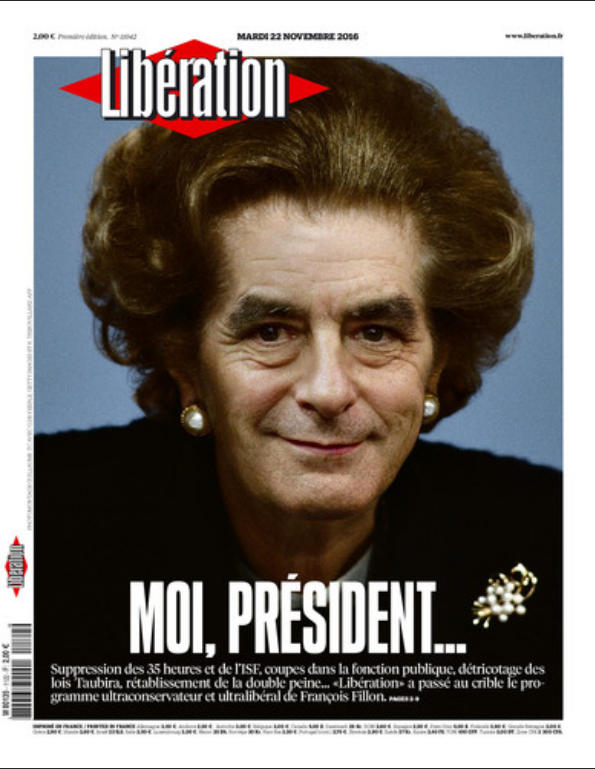
A quick look at some of the policies of the remaining two candidates in the primary for Les Républicains, the mainstream French party of the right. François Fillon, former Prime Minister under President Nicolas Sarkozy has a convincing lead having won 44% of the vote in the first round compared to Alain Juppé’s 28%. Sarkozy, who came third with 20%, has put his support behind Fillon, so he seems likely to win. The comparisons to Margaret Thatcher are already appearing from multiple sources, but I’m not sure he can match the Iron Lady for bloody-minded, deeply ideological, sweeping “reform”.
Policy |
Juppé |
Fillon |
| Budget cuts | €110 billion | €110 billion |
| Public service reduction | 250,000 | 500,000 |
| Change to 35 hour week (employers choice, no negotiation required) |
39 hours | 48 hours |
| Retirement age | 67 | 67 |
| Homosexual marriage | No change | No change |
| Homosexual adoption | No change | “Review of the rules” |
| Family Allowance | No change | Re-establish same level for everyone (i.e. no income test) |
| Russia | Cautious because of “Putin’s support for Bashar Al-Assad” | Normalise relations |

“Homophobes” slanderous?
- Details
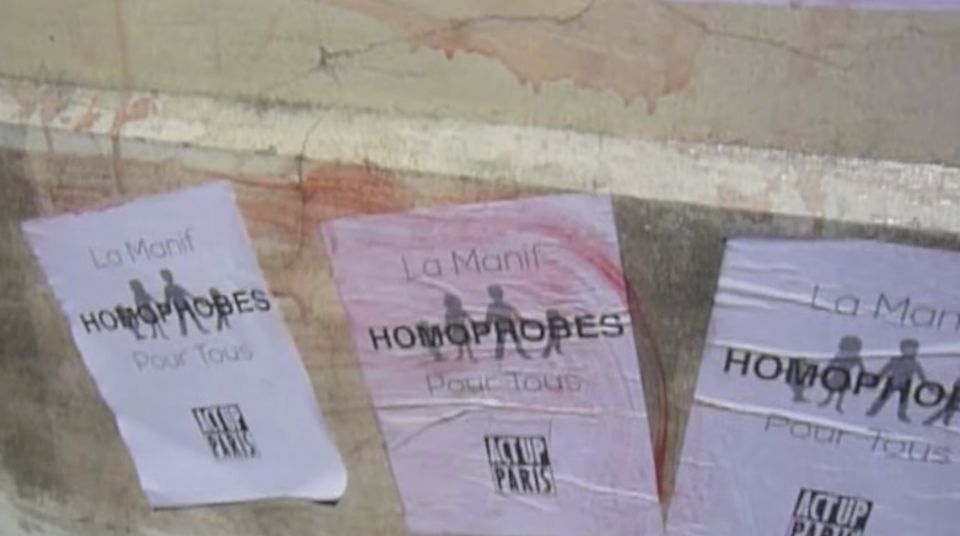
Screen capture from Act Up Paris video
By Alexandre Hervaud — 3 November 2016 at 6:50 pm (updated 4 November 2016 at 9:29 am)
The ex-president of Act Up Paris was convicted on appeal for slander against [the French anti-Marriage Equality group] Manif pour tous. The cause: posters carrying the logo of the association stamped with the word “homophobes”. The decision could create a precedent.
“Branding Manif pour tous as homophobes is a criminal offence.” That’s what Mr. Henri de Beauregard, lawyer for the association opposed to marriage equality, maintains after the conviction on appeal of Laure Pora on Wednesday. The ex-president of Act Up Paris, an association fighting against AIDS, was convicted of slander (injures publiques) and fined €800, to which was added, according to AFP, the payment of €800 damages and €1500 costs.
On 4 August 2013, Act Up Paris activists defaced the façade of the Jérôme-Lejeune Foundation, which is known for its support of the fight against abortion. Ludovine de la Rochère, president of Manif pour tous (LMPT), was at the time an employee. As shown in the video below, some posters showing the logo of LMPT stamped with the comment “homophobes” were pasted on the walls during that action.
Remember, according to the law of 29 July 1881 on freedom of the press, “any insulting expression, contemptuous term or invective which does not contain the accusation of any [particular] fact/act is a slander”. Not to be confused with defamation, consisting of “any allegation or accusation of a fact/act which harms the honour or the esteem of the person or body about which the fact/act is alleged”. No specific act having been mentioned in the posters, LMPT didn’t press charges against Laure Pora for defamation. An error that they made when attacking Socialist Party Senator Jean-Pierre Michel for defamation in March 2013. He had, in a public e-mail, branded the movement “the worst homophobes”. In a judgement delivered on 18 February 2014, the Court of Appeal confirmed that there was no case to convict the representative for defamation.
“Putin to the rescue!”
Contacted by Libération, Ms. Karine Geronimi, lawyer for Laure Pora, deplored the conviction and questioned the idea of slander. In her opinion, we shouldn’t forget the origin of the action taken by Act Up, also clarified in the introduction to the video previously cited. In May 2013, LMPT activists assembled in front of the Russian Embassy to “ask for Putin’s help”, in particular because “Russia still defends the family and marriage”.
Yet “Russia carries on a clearly homophobic policy with grave consequences, some Russian homosexuals suffering from AIDS prefer to not seek care for fear of being stigmatised or assaulted” recalls Ms. Geronimi. “Act Up considered that appealing to that country was a homophobic act”, she continued. LMPT eventually distanced itself from the assembly in front of the Russian Embassy, Ludovine de la Rochère talking about the acts of isolated activists and going so far as to assure that: “We will not stop defending fundamental liberties, so that’s certainly not so that we can go asking for help from Moscow.”
Ms. Geronimi, who at the moment has not seen the judgement of the Court of Appeal, referred to that context in pleading the case of her client who, according to her, “expressed an opinion, which was becoming difficult in France”. [update 4/1/2016] Laure Pora is appealing the decision on Thursday. In a communiqué, Act Up Paris supported their former president: “we cannot accept that the Court of Appeal [would] thus deny us the means of naming and denouncing the political discourse of our adversaries”. The association also reiterated its equal anxiety over another affair: a charge of defamation from Ludovine de la Rochère with the Jérôme Lejeune Foundation joining as a partie civile [seeking civil damages], which will have its first hearing on 17 November.
Le Pen, LMPT, same battle
Léa Forstier, a lawyer specialising in press rights, participated in writing a kit targeting the media “dealing with LGBT themes with respect for individuals”. In her view, “the simple fact of opposing the marriage of people of the same sex could infer a certain homophobia”. And if one imagined the case of a movement against biracial marriage: “If demonstrations against the union of people of different colours or origins took place, wouldn’t it seem legitimate to deduce that it contained a certain amount of racism? As soon as one refuses the same rights to individuals because of their sexual orientation, the question of homophobia cannot be concealed.”
She continues: “In the debate, the word ‘homophobes’ should not be analysed as an insult directed towards a group, but as a legitimate questioning of the ideology which is implied by such a mobilisation.”
For Ms Caroline Mecary, lawyer and Ecology Europe—The Greens councillor for the City of Paris, committed to the defence of equal rights, the conviction of Laure Pora could, if it becomes a precedent, “encourage a flood of homophobic remarks and offensive analogies with regard to same-sex couples”. According to her, LMPT is a political movement and must be able therefore to be criticised as such. She recalls that in the same way the courts did not convict Jean-Luc Mélenchon for calling Marine Le Pen a “fascist”, considering the term was not an insult “between political adversaries on a political topic”.
“Imposing its terms”
Considering the description “homophobes” as an insult constitutes, according to Ms. Mecary, “a real confiscation of a term that one no longer has the right to use”, and the possible beginning of proceedings against the emblematic figures of the struggle for equal rights. This is the subject of a blog post by activist Gwen Fauchois, ex-vice president of Act Up Paris in the 90s. Reacting to the conviction of Laure Pora, Fauchois writes: “Imposing its own terms is nothing trifling: it’s dictating what is acceptable and what isn’t. What can be thought. And under what conditions. Manif pour tous has abducted the ‘pour tous’ [marriage equality is called mariage pour tous “marriage for all” in French; manif pour tous means “demo for all”], demonised ‘gender’, appropriated the ‘family’, speaks to us of ‘fatherless IVF’ from now on, and busies itself with siphoning off ‘homophobia’”.
Seeking to display a “peaceable” image, LMPT has not stopped denying any homophobic tendancy in its communiqués and other presentations by its official representatives. In its parades, the spoken word is however less restricted, in fact totally crazy. Hence the choice of weightier words in announcing the conviction of Laure Pora on Wednesday: “The defence of the rights of the child and its parentage is not homophobic”, the movement proclaimed on Twitter.
In the LMPT’s communiqué, its chief organiser, Albéric Dumont, even maintained that “democracy comes out of this affair the winner”. At the same time, Christine Boutin was convicted on appeal for inciting hatred because of sexual orientation. She had described homosexuality as “an abomination” during an interview.
The Colour Purple
- Details
CHAPTER I.
THE MONASTERY
Deep in the heart of the Caucasus mountains a wild storm was gathering. Drear shadows drooped and thickened above the Pass of Dariel,—that terrific gorge which like a mere thread seems to hang between the toppling frost-bound heights above and the black abysmal depths below,—clouds, fringed ominously with lurid green and white, drifted heavily yet swiftly across the jagged peaks where, looming largely out of the mist, the snow-capped crest of Mount Kazbek rose coldly white against the darkness of the threatening sky. Night was approaching, though away to the west a broad gash of crimson, a seeming wound in the breast of heaven, showed where the sun had set an hour since. Now and again the rising wind moaned sobbingly through the tall and spectral pines that, with knotted roots fast clenched in the reluctant earth, clung tenaciously to their stony vantage ground; and mingling with its wailing murmur, there came a distant hoarse roaring as of tumbling torrents, while at far-off intervals could be heard the sweeping thud of an avalanche slipping from point to point on its disastrous downward way. Through the wreathing vapours the steep, bare sides of the near mountains were pallidly visible, their icy pinnacles, like uplifted daggers, piercing with sharp glitter the density of the low-hanging haze, from which large drops of moisture began presently to ooze rather than fall. Gradually the wind increased, and soon with sudden fierce gusts shook the pine-trees into shuddering anxiety,—the red slit in the sky closed, and a gleam of forked lightning leaped athwart the driving darkness. An appalling crash of thunder followed almost instantaneously, its deep boom vibrating in sullenly grand echoes on all sides of the Pass, and then—with a swirling, hissing rush of rain—the unbound hurricane burst forth alive and furious. On, on! splitting huge boughs and flinging them aside like straws, swelling the rivers into riotous floods that swept hither and thither, carrying with them masses of rock and stone and tons of loosened snow—on, on! with pitiless force and destructive haste, the tempest rolled, thundered, and shrieked its way through Dariel. As the night darkened and the clamour of the conflicting elements grew more sustained and violent, a sudden sweet sound floated softly through the turbulent air—the slow, measured tolling of a bell. To and fro, to and fro, the silvery chime swung with mild distinctness—it was the vesper-bell ringing in the Monastery of Lars far up among the crags crowning the ravine. There the wind roared and blustered its loudest; it whirled round and round the quaint castellated building, battering at the gates and moving their heavy iron hinges to a most dolorous groaning; it flung rattling hailstones at the narrow windows, and raged and howled at every corner and through every crevice; while snaky twists of lightning played threateningly over the tall iron Cross that surmounted the roof, as though bent on striking it down and splitting open the firm old walls it guarded. All was war and tumult without :—but within, a tranquil peace prevailed, enhanced by the grave murmur of organ music; men’s voices mingling together in mellow unison chanted the Magnificat, and the uplifted steady harmony of the grand old anthem rose triumphantly above the noise of the storm. …
[We are part-way down page 2. A new paragraph begins somewhere on page 3.]
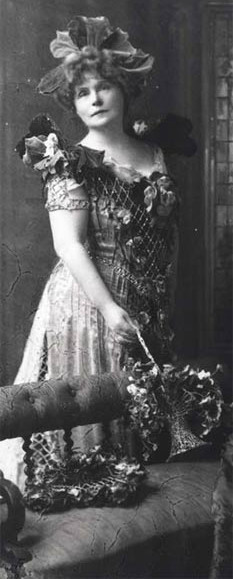
Although I’ve been vaguely aware of her for quite some time, I’ve never read any of the novels of the original New-Ager, Marie Corelli. She’s mostly forgotten today, but she was very big in her day, outselling contemporary authors whose names have lived on, such as Kipling, Wells and Doyle. Having taken Ardath: A Story of a Dead Self (1889) out of a box to read the letters stuffed into it, I thought I should have a quick glance at it and it certainly is a little…ahem…florid to the modern eye.
It’s hard to believe, I know, but the literary establishment criticised her for being overly melodramatic! Philistines obviously. She was also described as “a woman of deplorable talent who imagined that she was a genius, and was accepted as a genius by a public to whose commonplace sentimentalities and prejudices she gave a glamorous setting” and “combining the imagination of a Poe with the style of an Ouida and the mentality of a nursemaid”. Queen Victoria, however, was amused; Corelli was her favourite novelist.
She is known to have pretended to be able to speak Italian (she was born Mary Mackay) and was the inspiration for E. F. Benson’s Emmeline “Lucia” Lucas character. She was convicted of hoarding food during World War I, which didn’t do her reputation any good at all. I seem to remember Lucia got into a similar scrape (or was it Mapp?) but avoided prosecution.
Was she a lesbian? Difficult to say, as with many Victorian people who had what seem unusually close relationships with people of the same sex. What we do know is that she lived for forty years with her companion, Bertha Vyer, left everything to her when she died and that “over the fireplace in the fine, old spacious lounge at Mason Croft the initials M. C. and B. V. were carven into one symbol. And it was the symbol of life.”
And apparently, though no one told me (or at least told me loudly enough), there is a movie—Angel (2007)—that is more-or-less her biography. Based on a book by…Elizabeth Taylor. What?! Oh, it’s another Elizabeth Taylor. Directed by François Ozon! Why have I not seen it yet?
My Much thought-of Sister
- Details
Friday afternoon
it seems that all is well and news piles up so quickly even in such a homely spot as this (and with a homely soul like myself — you will allow one so close a little pretension I hope). All the Bladder-Fondlers send their love, even crusty Abblethwath — delivered in his own rather coarse and incontinent manner, and the baby in its infantile gargles. All is well apart from a rather unseemly illness in the nether regions of the most junior members (please pardon that vulgar pun) — playing too lustily, as youth is prone to do, with their new xmas gifts. Nothing more serious than a mild putrescence that a little home surgery has corrected — we now have a family of heiresses. I prophesied that the unwanted aggressions of the juniors would become a sin of the past. This seems to be the case and the more senior Abblethwath has come round to my way of thinking. I have been audacious enough to congratulate myself on my firm hand in the matter and George rather playfully suggested a career in the Diplomatic corps which made me blush at table — we were taking tea at the time. It was very gallant of him though we all know that I am too busy working my collars to contemplate the world of politics — which of course hasn’t been the same since cousin Benjamin (I ought to say Mr. Disraeli but he’ll always be Bumptious Benny to me) pulled the empire together.
And collars have been my major raison d’être during my vacation. I have finished a rather nice linen Queen Anne with cream scallops and white mistletoe that will suit your grey silk a treat. On my return you must allow me the pleasure of offering it to you. Beneath your cap and wringlets it will set off your elegant throat, the envy of all who have the misfortune of not being born a Bladder-Fondler. I know the Duchess will be piqued — she has positively bullied me into her service though I remain firm in my resolve to keep my collars for blood relatives; if I faltered for the Duchess, formidable as she can be, why then my collars might end up becoming a fad for society and that would be unbearably vulgar. I would shudder at the thought if I wasn’t unutterably well bred.
Nature appears intent on negating any pleasures for me, crudely gothic that it is. But I remain undaunted. What loss is it to I that the chaise-and-four cannot be taken out in this unseasonable heat. I have never felt the necessity of driving hither and thither, exhausting oneself with waning and nodding along the avenue. Much rather, I take my seat at dear Grandpapa’s table, basket close at hand and content myself with humble stitching.
I had to point out to the Archdeacon, when he commented on my secluded ways at dinner last Tuesday, that the church may momentarily condone flippancy in the guise of sociability, but my eyes and hands had sights on eternity, a sight perhaps more distant, but certainly more beautiful that those nearer at hand. I thought it most improper, as you can well imagine, and found it most discomfiting to appear at odds with one steeped in our Lord’s ways, but then he is of Methody and Great Grandpapa would have been much more severe in his opposition I didn’t doubt after due reflection in the privacy of my room.
I hear a cry of despair; I fear Maggie has been playing with Tom by the pond again. I must attend.
Goodbye my dearest. B.
Politics in the Giro
- Details
Page 2 of 6


